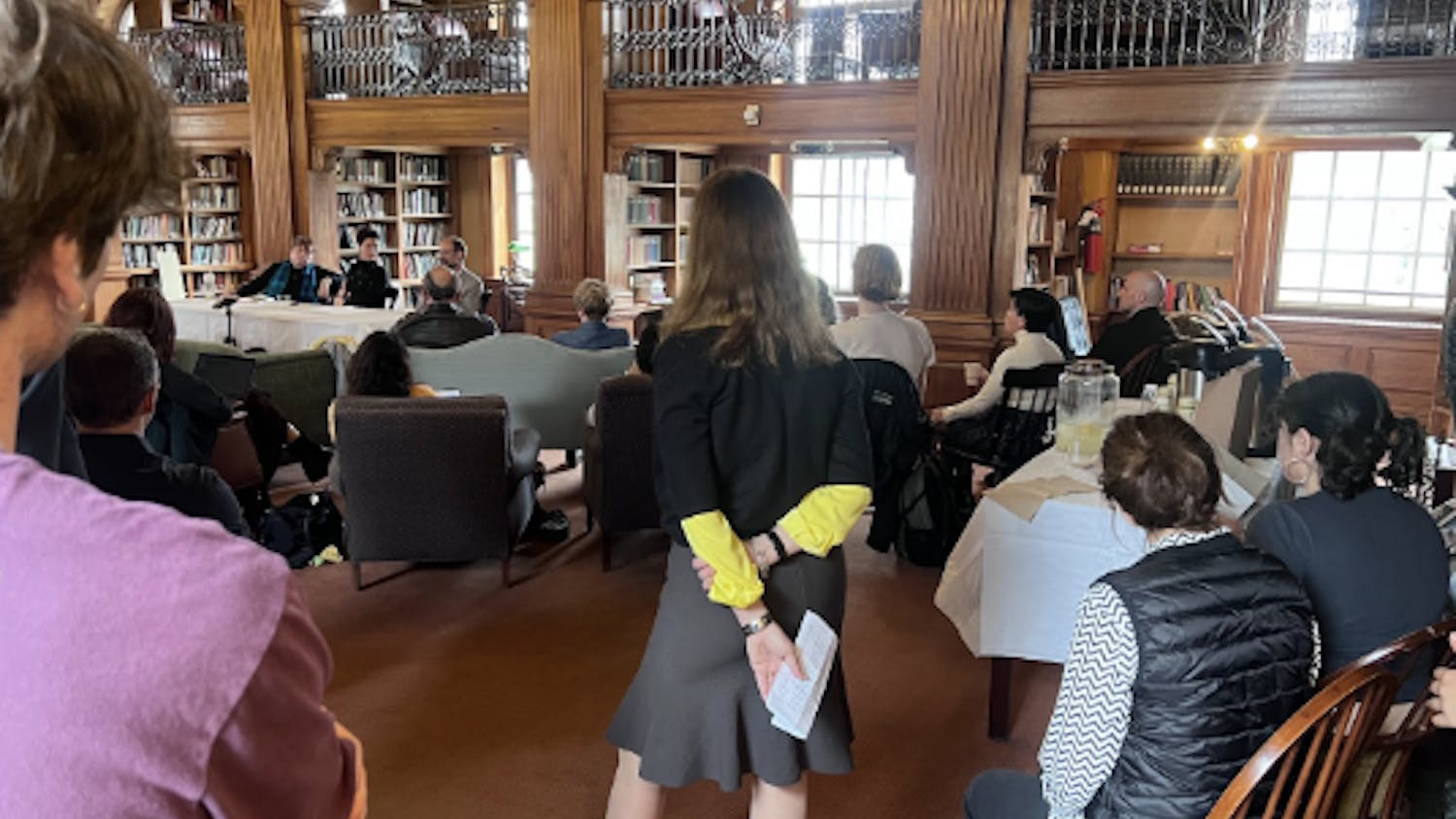In Joel Schumacher's latest film, cell phones in Manhattan are like BlitzMail accounts at Dartmouth -- a requirement, a habit and a means of communication that hides our voices behind a faceless wall of technology.
The film takes place entirely in midtown Manhattan, land of the cell phone-gripping consumer, the raucous prostitute, the wide-eyed tourist and the last standing phone booth in all of New York City.
Doomed to be torn down in T minus 24 hours, the Bell Atlantic booth must first deliver to the chosen citizen a call from hell -- or at least a call from a voice that needs to stay in nightmares and out of reality: "If you hang up, I will kill you."
And we're off on a tense, rapid, and tightly fastened ride through the trials, tests, wits, confessions and redemption of one man. The premise sounds ridiculous, but as contrived as the film is in retrospect, it's a ride worth taking.
Colin Farrell sharply plays Stu Shepard, a schmooz-ing, fast-talking, two-faced publicist who manages, in a brief walk down Eighth Avenue, to juggle four clients, hit on women and cajole his pawn of an assistant. Why does he stop and use a beat-up phone booth in the middle of Times Square? Because he has also been fondling a young actress behind his wife's back and must avoid any trace of their interactions on his phone bills.
He calls his mistress, tells off a delivery guy bringing pizza to the booth and instinctively answers the ringing phone. The caller at the other end turns out to be a sniper who has found him "guilty of inhumanity to [his] fellow man" and has sentenced him to confess or die. The sniper knows more about Shepard than a stalker, and he proves his warning with an execution, targeting other possible victims with a red laser dot from his rifle.
The film stays planted in the booth, almost completely in real time, while Shepard is interrogated, framed and displayed for public viewing. He must juggle and negotiate his life, his pride, his secrets and the lives of others while fending off the entire NYPD and silently trying to convince a cop to understand the danger presented by the phone caller.
Kiefer Sutherland is the voice of the sniper, and his psychopathic serial killer is easily the most interesting and complicated character. His faceless voice resonates outside of the other auditory and visual elements of the film, separating him from the world of Manhattan and turning into something more strangely ethereal.
Likewise, the voice seems to have a psychological insight and physical power that often challenge the bounds of human facility. Besides obsessively knowing Shepard's personal biography and social interactions, the sniper controls other elements and coincidences that distinguish and disclaim him from the ordinary psychopath. The voice even manipulates Shepard as if it were his conscience, illuminating his personal flaws, weaknesses and deceptions, and pressuring him to come clean and redeem himself.
Both actors hold up this complex dynamic. Sutherland is chilling, and Farrell impressively sustains 81 minutes of close screen time in a small space, somehow managing to be a likeable, sympathetic, even courageous schmuck. Forest Whitaker is strong but typecast as the benign cop who proves himself with quiet insight. He exchanges nonverbal communication with Shepard to apprehend and resolve the actual situation. Radha Mitchell and Katie Holmes play the token characters of Shepard's wife and girlfriend, respectively, but Mitchell finds some depth and compassion in her stock role.
The film is essentially a moral tale railing against self-importance, betrayal, commercialism and the mass media. As the sniper asserts, "TV seems to help bring out the worst in people," and what better place to expose, torture and humiliate the vain media consultant than in Times Square, chock full of billboards, flashing advertisements, camera-toting tourists, news teams, price tags and posters flaunting "Who do you think you are?"
The film is supported by unusual cinematography, tight editing and inventive sound. Coupled with those are the distorted voices, electronic noise and cars that fill the city and Shepard's frenzied world.
But beware of a preposterous narrative frame, gimmicky subplots, painful injections of humor, sappy, piano-laced confessions and cringe-worthy lines like "I'm just a part of a huge cycle of lies. I should be president!"
Despite such typical flaws and a conciliatory ending, "Phone Booth" is an entertaining thriller with a point, at the very least. If you can suspend disbelief for less than an hour and a half, it's worth the ride.



